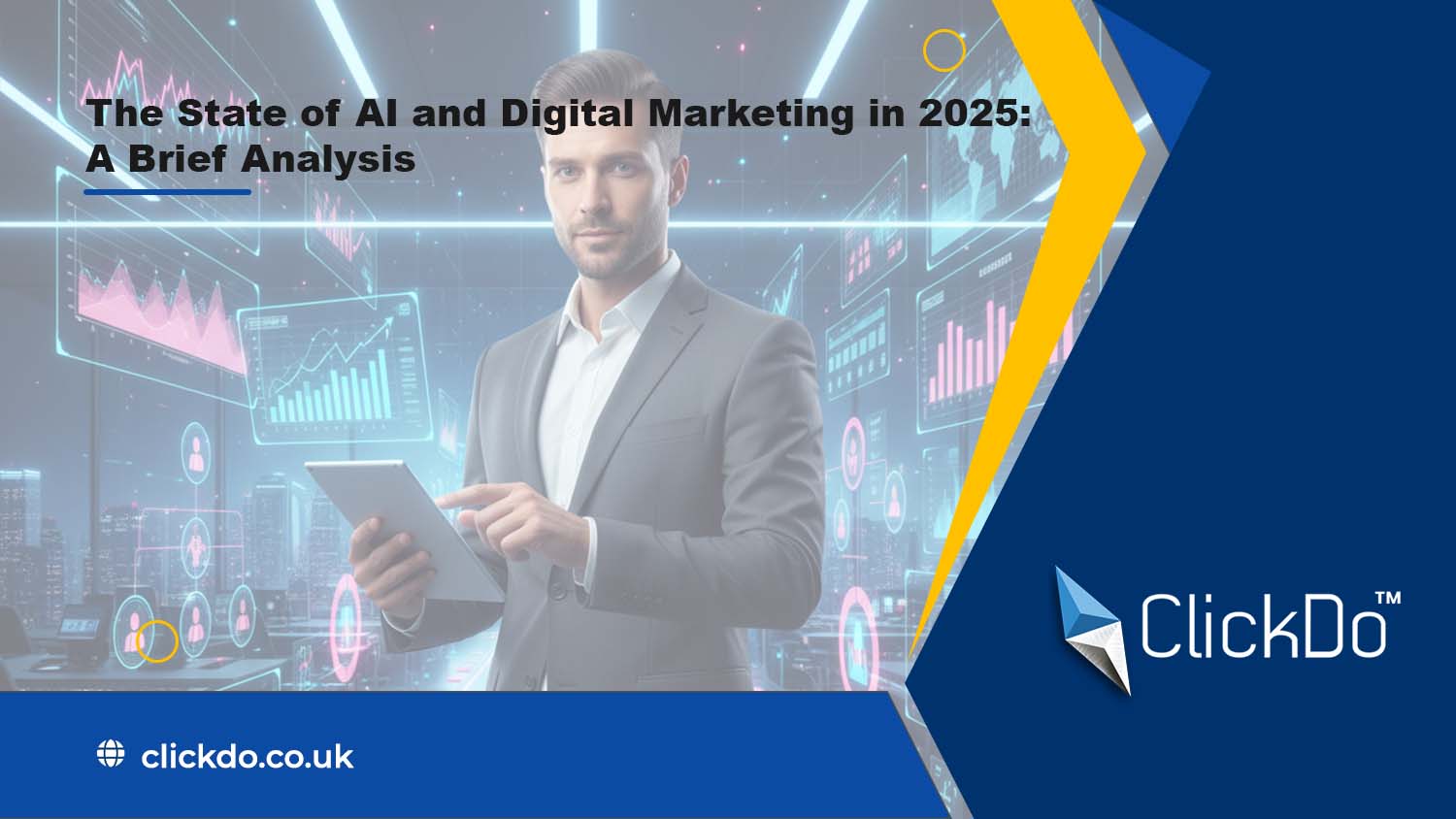
The State of AI and Digital Marketing in 2025: A Brief Analysis
A decade ago, few people could have predicted the impact that artificial intelligence (AI) would have on daily life.
From cooking dinner to finding new products and businesses, its effect on the world has been swift and profound. This is especially true in business, where the technology has redefined marketing.
What does the future look like for AI in the marketing industry, and how has the industry had to adapt and evolve? In this article, we’ll look at everything you need to know.
Enhanced Customisation

If there’s one thing that experienced marketers will pass on to younger generations, it’s that every customer is different. Marketing campaigns are designed to appeal to as many of them as possible because, until recently, the idea of drafting personalised campaigns seemed ludicrous. Who has the time to sit around and analyse customer clicks and responses to determine which product to recommend next? This is where AI is making a huge difference.
AI makes it easy to create content and support tailored to specific users. The ability to craft customised customer journeys that change alongside customer behaviour, in particular, has caught the eye of many professionals. AI can analyse how customers interact with a given product or business and create strategies that appeal to individual customers. Marketers don’t have to rely solely on broad-spectrum advertising, in other words, because it’s now possible to create more defined journeys informed by an individual user’s actions.
Elevated Content Creation
Another area where AI is making a big difference is content creation. More specifically, AI allows marketing professionals to provide ‘bespoke SEO’ designed to target both large populations and smaller niche communities. Like the customisation mentioned above, agencies are taking the idea of ‘relevant content’ to a whole new level.
AI allows professionals to inform the creation and optimisation of campaigns and ensure that decisions are based on smarter, more accurate data. Content is then created based on those metrics, with AI further refining future campaigns by analysing the huge amount of data generated by those prior. Each successive campaign should ideally be more successful than the last, as professionals are able to zero in on consumer populations and what drives their engagement.
The Future is Promising

The future outlook of AI and marketing seems bright. Professionals are already developing AI-heavy marketing strategies, and there’s truly no end in sight. We expect AI to reshape operational efficiency and customer engagement in the near future. Coming into 2025, Nielson noted that roughly 60% of global marketers surveyed were adopting AI for campaign optimisation and personalisation. In the future, we think that this number will increase as businesses see the value in AI tools such as dynamic ads that change in response to user profiles and redefine the customer experience.
What do you think about how AI has affected marketing? When used carefully and effectively, AI has the potential to dramatically change the way that businesses market their products and services. These changes, while sweeping in nature, often result in superior campaigns that offer customers personalised ads and experiences based on their prior behaviour. Given enough time and data, AI has the potential to reshape the entire industry.
Author Profile
- As the Chief of Marketing at the digital marketing agency ClickDo Ltd I blog regularly about technology, education, lifestyle, business and many more topics.
Latest entries
 Digital MarketingJanuary 15, 2026Growth Strategies with Marketing Automation & SEO in High-Competition Niches
Digital MarketingJanuary 15, 2026Growth Strategies with Marketing Automation & SEO in High-Competition Niches Digital MarketingOctober 24, 2025The State of AI and Digital Marketing in 2025: A Brief Analysis
Digital MarketingOctober 24, 2025The State of AI and Digital Marketing in 2025: A Brief Analysis Digital MarketingOctober 1, 2025How Dating Sites Climb to the Top of Google: SEO, Link Building, and the Cost of Visibility
Digital MarketingOctober 1, 2025How Dating Sites Climb to the Top of Google: SEO, Link Building, and the Cost of Visibility Digital MarketingSeptember 24, 2025Global vs Local SEO Strategies for UK Companies
Digital MarketingSeptember 24, 2025Global vs Local SEO Strategies for UK Companies

